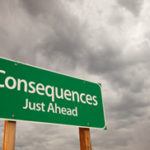Whenever I come across research findings backing up my findings regarding affairs, it brightens my day. The behavioral scientist in me comes out and celebrates.
At such times I feel like jumping around my home shouting “I knew it! I knew it! I knew it!” Although I wanted to say “I told you so!” this time, I restrained myself and curtailed my enthusiasm.
It’s ‘real science’ when one set of findings are replicated by other researchers in totally different locations have the same findings. This is such a contrast with what is often passed off as science in the news these days.
Given that affairs and marriage relationships are often such touchy topics, coming across some solid research is always encouraging.
A group of researchers led by Dana Weiser at Texas Tech found that there is a family pattern when it comes to affairs. her research involved 1,254 participants, which is a nice sample size.
Although family therapists and clinicians have long known such connections exists, seeing them validated is encouraging.
The next question asked by Dr. Weiser is “why does this association between parental infidelity and one’s own infidelity exist?” I agree that Dr. Weiser’s question is a great one for consideration.
Dr. Weiser stated “My work suggest that socialization is at least one partial explanation. More work needs to be done to assess biological, psychological, and contextual factors to explain this association.”
I agree with how socialization is at least one PARTIAL explanation. Although she wants other factors explored, she left out spiritual, which means that the possibility of sin patterns won’t be looked at.
I don’t know WHY the pattern of affairs through the generations exist. What’s clear is that it exists. This means if there’s a family pattern of affairs, you’re at higher risk for having an affair or being cheated on.
It also means that some families are more prone to affairs than others. It’s not fair, yet that’s what science is finding. Who knows, there may be something to the old expressions about ‘bad blood?’
One noteworthy item is that the pattern exists where children think their parents cheated. This means that even rumors or suspicions of affairs impact families.
If your children or grandchildren think you cheated, the risk for them cheating increases.
Her findings also tell me that affairs impact more people than anyone ever expected. Cheaters rarely consider that their actions increase the risk of their own children and grandchildren cheating. They think it’s only between the adults involved.
What the findings also mean is that when there is an affair you want to deal with both the affair and break the family patterns. This is why I make a point of dealing with breaking and changing family patterns in the “Affair Recovery Workshop“.
Best Regards,
Jeff

















